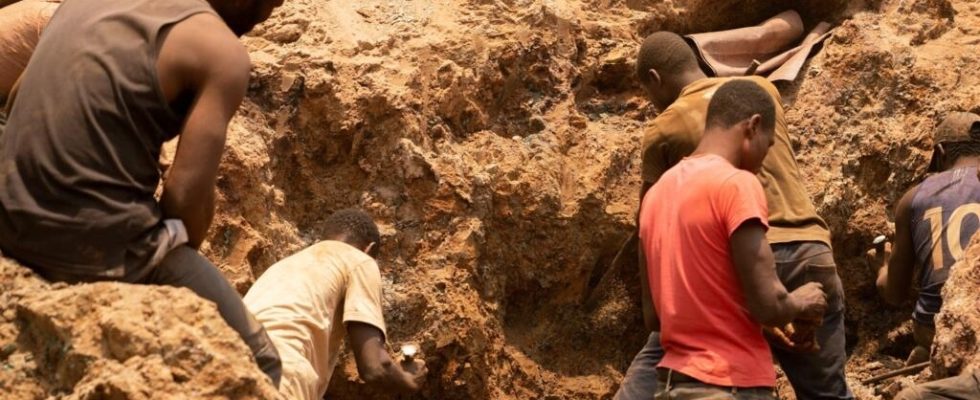The signing of this memorandum of understanding on minerals last February, between the European Union and Rwanda in the midst of the conflict in eastern DRC, was very poorly received in the DRC. Questioned this week, on the occasion of Europe Day, the ambassador of the European Union in Kinshasa admitted that the approach should have been better explained.
2 mins
This cooperation agreement on raw materials was signed between Rwanda and the European Union on February 19, 2024. It was criticized in the Democratic Republic of Congo (DRC) because Kinshasa denounces the plundering of Congolese minerals for more than twenty years by certain foreign countries, including Rwanda.
Read alsoA Rwanda-EU cooperation agreement on raw materials, denounced in the DRC, defended by Brussels
On the EU side, Brussels defends this agreement and recalls having condemned on numerous occasions the behavior of the various actors towards armed groups in the east of the DRC. For two years, the European Union has been working with a dozen countries around the world, including African countries, on access to strategic minerals, in particular to improve traceability, transparency and certification.
Details from Nicolas Berlanga Martinez, EU ambassador in Kinshasa, joined by Amélie Tulet from the Africa editorial team. “ Already it should be clarified that a memorandum of understanding is not a legal commitment, it is not a treaty, it is not an agreement. It is only a statement of principle that gives both sides six months to develop a road map. This is the start of negotiations to define projects of common interest, activities and actions linked to these strategic minerals.
The memorandum of understanding signed by the European Union with Rwanda focuses on traceability and transparency.
Perhaps before signing the protocol with Rwanda, it would have deserved more explanations. You know, perception is always very free, and sometimes that doesn’t mean it’s well informed.
We are always looking for the same thing, that is to say transparency and avoiding countries that do not produce all the minerals they export, being able to do so in the future. I think this is the right approach, this is what we are working on. »
And the ambassador of the European Union recalled that a another memorandum of understanding signed with Kinshasa a few months earlier, in October, focused on traceability, certification and processing of minerals. A road map, he hopes, will be presented in Lubumbashi in June on the occasion of the Mining Week.
